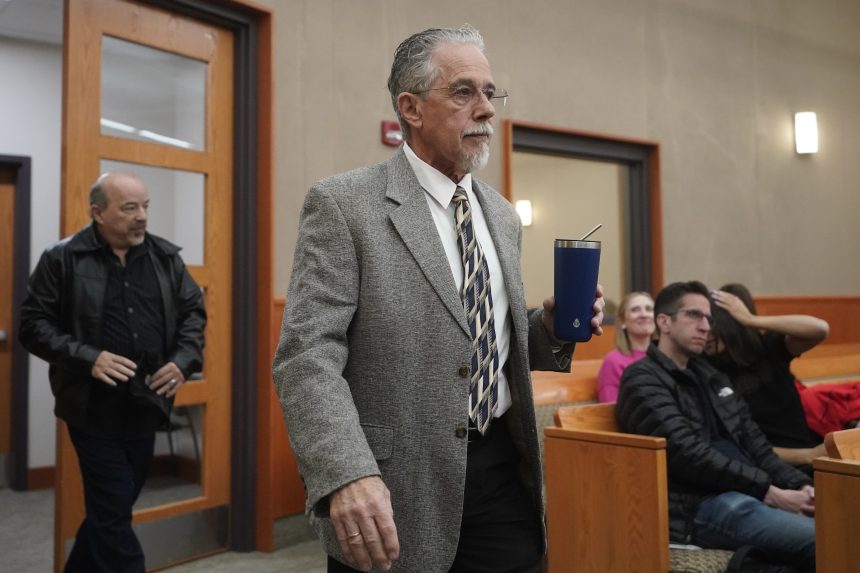Expert witnesses play a crucial role in legal cases, helping to clarify complex topics and provide credible opinions that influence the outcome of a trial. Whether it’s a medical malpractice lawsuit, a product liability claim, or a personal injury case, courts rely on expert testimony to break down technical evidence in a way that juries and judges can understand. However, not just anyone can testify as an expert—there’s a strict process to determine whether a witness is qualified. Their background, knowledge, and the reliability of their testimony all come under scrutiny before they are allowed to present evidence in court.
A lawyer seeking to introduce an expert witness must first demonstrate their credentials and establish their authority in the field. The opposing side has the right to challenge the expert’s qualifications, questioning their education, experience, and any potential biases. Legal professionals, such as those at the top-rated injury law firm in Atlanta, Piasta Walker Hagenbush, LLC, often rely on highly respected experts whose credibility has been tested in previous cases. If a witness does not meet the necessary standards, the court can disqualify their testimony, making expert selection a critical part of the trial strategy.
What Courts Look for in an Expert Witness
Judges don’t accept every so-called expert who walks into the courtroom—there are specific qualifications they must meet. First, the witness must have specialized knowledge, training, or experience in a relevant field, such as medicine, engineering, or forensic science. Their expertise must go beyond general knowledge, proving that they have the skills necessary to interpret complex evidence. A lengthy professional background, published research, and previous courtroom experience often strengthen an expert’s credibility.
Beyond credentials, the court evaluates how reliable the expert’s methods and opinions are. If an expert relies on untested theories or controversial practices, their testimony may be rejected. Courts often apply the Daubert standard, which assesses whether an expert’s methodology is scientifically valid and widely accepted in their field. This ensures that only credible, evidence-based opinions influence the case, preventing misleading or speculative testimony.
The Daubert Standard vs. The Frye Standard
Not all courts follow the same rules when it comes to qualifying expert witnesses. Some states use the Daubert standard, which requires judges to assess the reliability and relevance of an expert’s testimony based on scientific principles. Under Daubert, courts examine whether the expert’s methods have been tested, peer-reviewed, and generally accepted within the professional community. This standard places a heavy burden on attorneys to prove that their expert’s opinions are backed by sound science.
Other states follow the Frye standard, which is a simpler test that focuses on whether the expert’s methods are widely accepted in their field. Unlike Daubert, Frye does not require judges to independently evaluate the science behind an expert’s testimony. Instead, if a majority of professionals in the field recognize the method as legitimate, the expert is allowed to testify. Understanding which standard applies in a given jurisdiction is crucial for attorneys preparing to introduce expert witnesses.
Challenges to an Expert Witness’s Credibility
Even if an expert witness has impressive credentials, their testimony can still be challenged in court. The opposing attorney may attempt to discredit them by highlighting inconsistencies in their past statements, questioning their research methods, or pointing out biases, such as financial incentives. Experts who frequently testify in court, especially those who work almost exclusively for plaintiffs or defendants, may be accused of being “hired guns” rather than impartial professionals.
Attorneys also examine an expert’s past testimony in other cases to look for contradictions. If an expert has made conflicting statements in similar cases, their credibility weakens. Some experts have been barred from testifying altogether due to repeated challenges to their objectivity. A strong expert witness must not only have the right qualifications but also maintain a reputation for honesty and scientific integrity.
How Experts Are Used in Different Types of Cases
Expert witnesses play a vital role in legal cases by providing specialized knowledge that helps clarify complex issues for juries and judges.
- Medical Experts- In personal injury and medical malpractice cases, doctors testify about whether a healthcare provider’s actions deviated from standard practices and the long-term effects of injuries.
- Accident Reconstructionists- These experts analyze crash evidence, including vehicle damage and road conditions, to explain how an accident occurred and who was at fault.
- Product Liability Specialists- Engineers and safety experts assess design flaws and manufacturing defects in defective product cases to determine liability.
- Financial Experts- Economists and forensic accountants calculate lost wages, future earning potential, and economic damages in injury and business-related disputes.
- Mental Health Professionals- Psychologists and psychiatrists provide insight into emotional trauma, PTSD, or diminished mental capacity in cases involving psychological injuries.
Regardless of the case type, expert witnesses simplify technical details, making it easier for juries to make informed decisions based on credible, professional analysis.
The Role of Pretrial Hearings in Expert Qualification
Before an expert can testify in front of a jury, pretrial hearings are often held to determine their qualifications. During these hearings, the judge listens to both sides present arguments about the expert’s credentials and methodology. Attorneys may call other experts to challenge the credibility of the witness, creating a legal battle over whether their testimony should be admitted. These hearings are crucial because a case that heavily depends on expert testimony can be won or lost based on the judge’s ruling.
If an expert is disqualified at this stage, the attorney presenting them may need to find a replacement or adjust their legal strategy. Losing a key expert can weaken a case significantly, making pretrial preparation essential. Attorneys must anticipate challenges and be ready to defend their expert credentials and the reliability of their methods. A strong expert witness not only survives these hearings but also strengthens the case moving forward.
The Impact of a Strong Expert Witness on a Case
A well-qualified expert witness can be the deciding factor in a case, providing credibility to a plaintiff’s or defendant’s claims. Their testimony can clarify technical evidence, counter opposing arguments, and provide jurors with the information they need to make an informed decision. A clear, well-spoken expert who presents evidence convincingly often holds more weight than legal arguments alone. Their ability to break down complex topics in a way that is easy to understand can make or break a case.
On the other hand, a poorly prepared or biased expert can do more harm than good. If jurors sense that an expert is unreliable or self-serving, their testimony may backfire, damaging the credibility of the side that presented them. A great expert witness isn’t just knowledgeable—they must also be persuasive and maintain their integrity under cross-examination. Selecting the right expert is one of the most critical strategic decisions in any trial.














